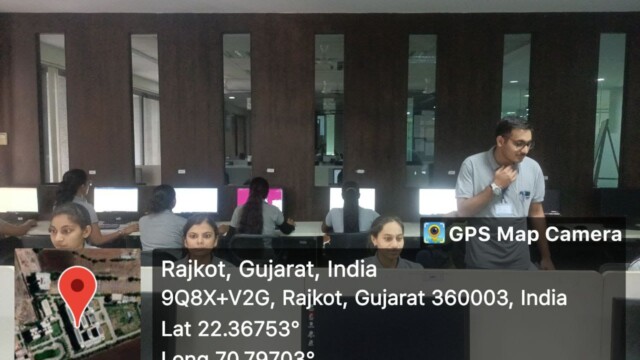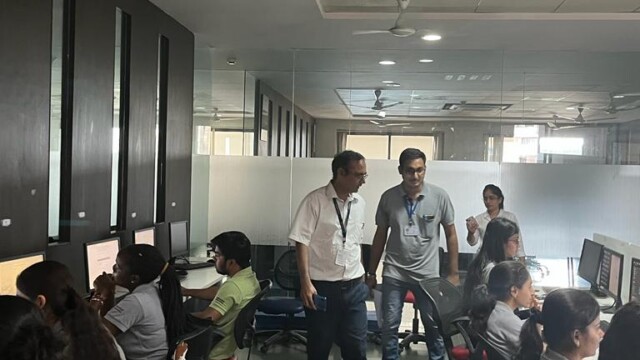With fields of science constantly diverging due to paramount necessities of the society, its hard to keep a track of each and every faction of it. One such confusion that students often encounter a challenge in understanding is the difference between chemical engineering and chemistry.
While interconnected, they are distinct fields with unique focuses, methodologies, and applications. Both fields are rooted in the study of matter and its transformations, however, they diverge in several key aspects. Understanding the differences between chemical engineering and chemistry is essential for students, professionals, and policymakers seeking to make informed decisions about their careers and research priorities.
If you are feeling indecisive choosing between chemistry and chemical engineering courses, this article might come in handy to help you make a decision.
Scope and Objectives
Chemical engineering is primarily concerned with the design, optimization, and operation of industrial processes for the production of chemicals, materials, energy, and pharmaceuticals. Its focus extends beyond understanding chemical reactions to encompass the development of scalable solutions that meet specific economic, environmental, and safety criteria.
Chemistry, on the other hand, is more oriented towards fundamental research and exploration of the properties, composition, and behaviour of matter. While chemists may investigate the mechanisms of chemical reactions and synthesize new compounds, their scope is often narrower compared to that of chemical engineers.
Problem-Solving Approach
Chemical engineers approach problem-solving from an engineering perspective, applying principles from physics, mathematics, and economics to design and optimize processes. They must consider factors such as heat transfer, fluid dynamics, and mass transport to achieve desired outcomes efficiently and cost-effectively.
In contrast, chemists often adopt a more exploratory approach, seeking to understand the underlying mechanisms of chemical reactions and uncover new phenomena through experimentation and theoretical modelling. While both disciplines rely on rigorous analysis and experimentation, their approaches to problem-solving differ in terms of emphasis and methodology.
Career Opportunities
Chemical engineers have a diverse range of career opportunities in various industries, including petroleum, pharmaceuticals, food and beverage, environmental management, and renewable energy. They work as process engineers, plant managers, consultants, and researchers, contributing to innovation and development in their respective fields.
Chemists, on the other hand, may pursue careers in academia, research institutions, government laboratories, or specialized industries such as pharmaceuticals, materials science, and biotechnology, where their expertise in fundamental chemistry is valued.
Scale of Operations
Chemical engineering typically involves working on a large scale, designing and managing processes that involve massive quantities of materials and energy. Chemical engineers deal with factors such as heat transfer, fluid dynamics, and mass transport in industrial settings such as refineries, manufacturing plants, and power stations.
In contrast, chemists often work on a smaller scale, conducting experiments in laboratories to study molecular interactions and develop new compounds or materials.
Necessary Skillset
Chemical engineers require a diverse skill set that includes strong analytical and problem-solving abilities, a solid understanding of chemistry, physics, and mathematics, as well as proficiency in engineering principles and techniques. They must also possess communication and teamwork skills, project management abilities, and a commitment to safety and environmental stewardship.
Chemists need a deep understanding of chemical principles, laboratory techniques, and instrumentation, as well as critical thinking and experimental design skills to conduct research and analyse data effectively.
Expected Salary (in Rupees)
In India, the salary range for chemical engineers varies depending on factors such as experience, industry, location, and level of education. Entry-level employees with a BTech in chemical engineering can expect to earn around Rs. 3-6 lakhs per annum, while mid-career professionals with several years of experience may earn Rs. 6-12 lakhs per annum.
For chemists, the salary range also varies depending on factors such as qualifications, experience, and industry. Entry-level chemists may earn Rs. 2-5 lakhs per annum, while mid-career professionals with specialized skills or advanced degrees may earn Rs. 5-10 lakhs per annum. Senior-level chemists, such as research scientists or laboratory directors, can earn salaries ranging from Rs. 10-20 lakhs per annum or more, depending on their level of expertise and leadership responsibilities.
While chemical engineers devote their time and efforts towards creating innovative and sustainable solutions by combining studies from all fields of science, chemists are bequeathed with the task of advancing our understanding of matter and their applications. Both fields play vital roles in advancing science, technology, and innovation, contributing to the development of new materials, processes, and technologies that benefit society.
Hence, the only deciding factor that will help you choose a particular stream is your personal ambition and inclination. If you are interested in building sustainable solutions for society by incorporating insights of chemistry with other factions of science, then a BTech or diploma in chemical engineering might be the right call.
If you are passionate about broadening humanities understanding of matter and finding newer ways to wield them, then you should choose chemistry. At Marwadi University, we offer a wide range of courses, both in chemical engineering and chemistry, that will help you start off in your particular stream.
















 International Airport
International Airport  Railway Station
Railway Station  GSRTC Bus Port
GSRTC Bus Port 


